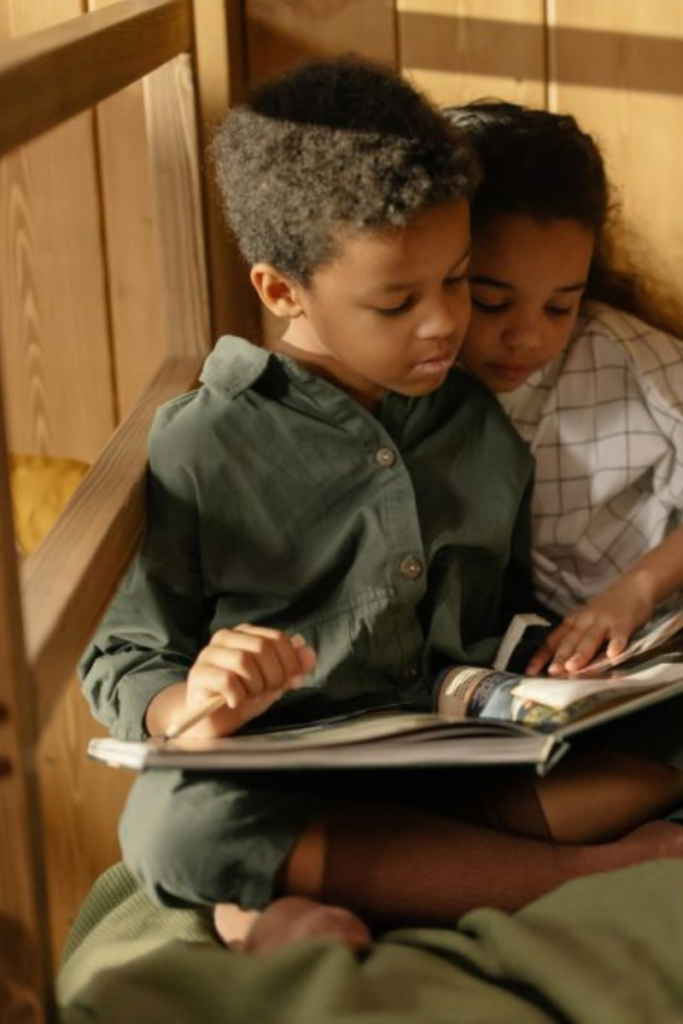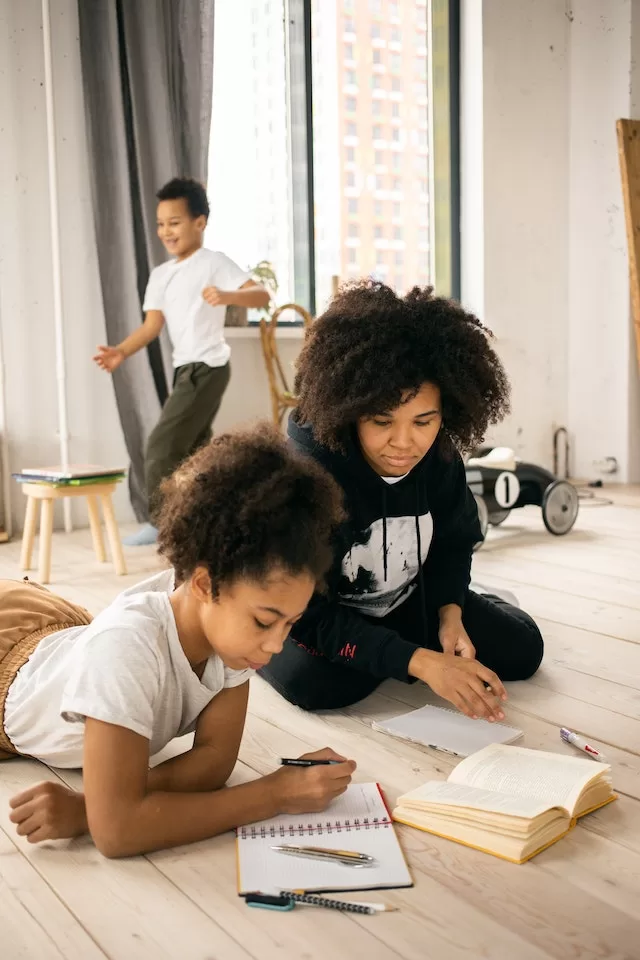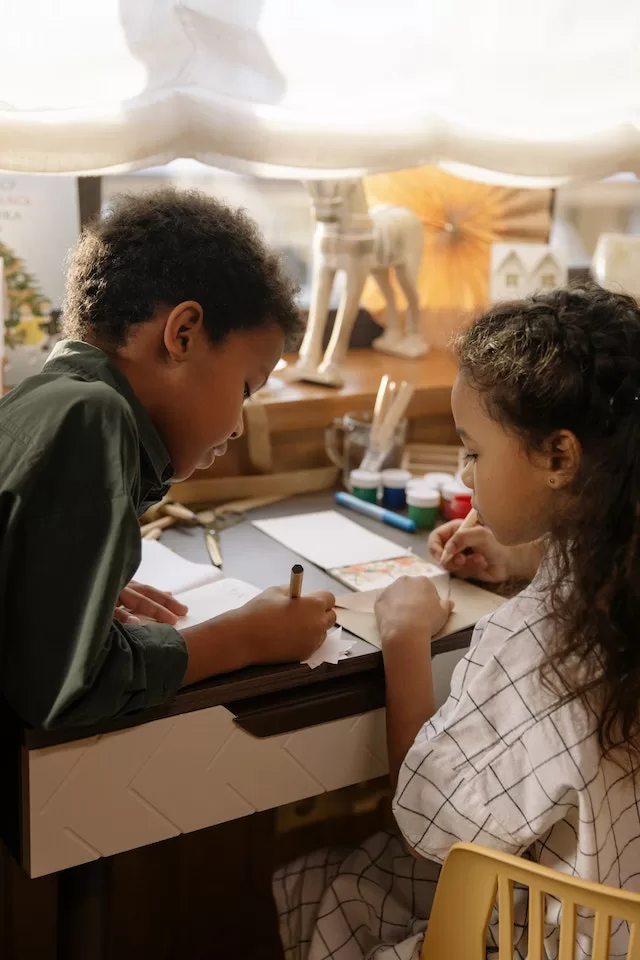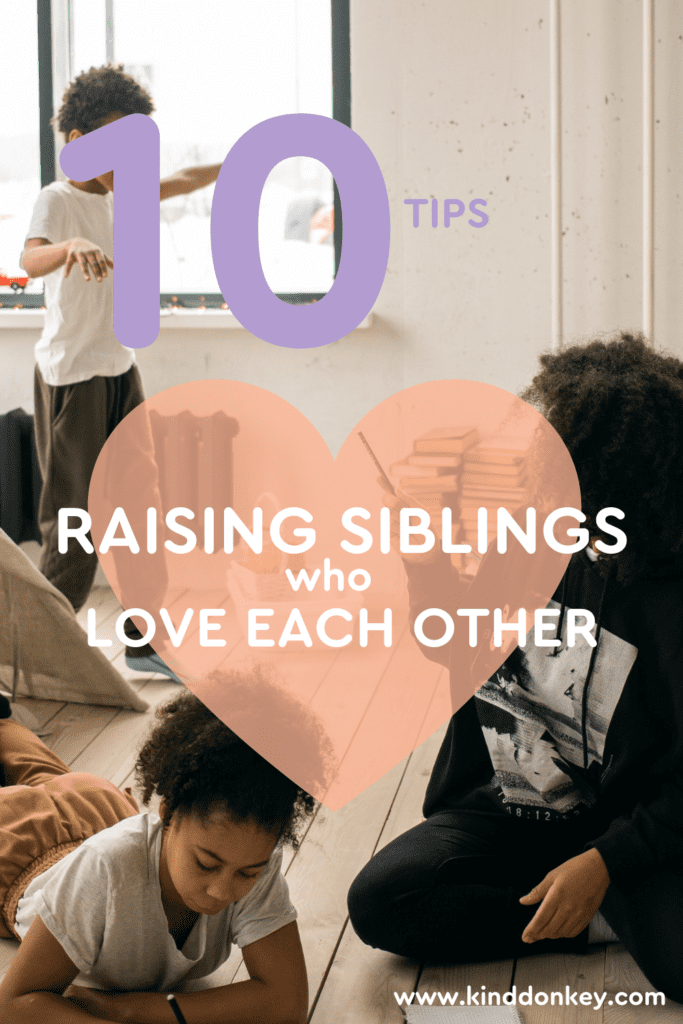When I became a mom of two, I knew one of my main priorities would be raising siblings who love each other.
First of all, why would it be so important to raise siblings to be friends for life? I think siblings are amazing gifts to our kids. If we can facilitate a good sibling relationship and avoid sibling rivalry, they will have each other’s back for most of their lives.

I know how socially unacceptable it is to say this, but I’m going to say it anyway. I think my kids have a fantastic siblings relationship and it is mostly because of me paying attention to it from the moment I got pregnant with my second child.
This may sound like saying that if your kids are not such good friends it is because you didn’t try hard enough.
What I mean is that we have huge influence in our kids’ lives. My kids are not the best at keeping order with their toys. I myself am not very tidy. They are not the most self sufficient kids. But they are fantastic brothers, because that has always been a top priority for me.
So if that is something that you consider important, here are some things that I think are important in raising siblings who love each other.
Which age gap is best for siblings to love each other?
There is a lot we can do to help our kids love each other, and we can start very early on, even when we are planning the pregnancy. I realize that is not a luxury everyone has. But if you do, you may want to think about their relationship when planning to get pregnant.
Siblings who are close in age have more opportunities for shared experiences and they have a better chance of growing up together. On the other hand, parents have to be in good health and be generally comfortable and stable to be the best parents.
For my family, 2 years is the perfect age gap between siblings. It is close enough so that they can grow up as peers and far apart enough so it’s manageable for us parents. With a two-year age gap, they can go together to kindergarten, school, high school, extracurricular activities, and sometimes even be in the same class.
If they have a big gap, they can love each other to pieces too. The relationship will be different. Less based on similar likes and experiences and more based on admiration and care.
Spend time with the kids at home to raise siblings who love each other
I am incredibly fortunate and privileged. I live in a country that gives me the opportunity to spend a long maternity leave with my babies at home.
I also make as many adjustments as I can to make spending a lot of time with my kids possible. Those adjustments mean that we live with very little luxuries compared to most people around us.
It would be very tempting to use that time mainly one-on-one with the baby while the toddler is in daycare, but I have found that having them both at home for the first two years has made them inseparable.
Then at four and two years old, they go together to kindergarten for a couple of hours in the morning. They go to the same class, and they are happy to share that too.
Each child needs one-on-one time, but it doesn’t have to be all day long. It is much easier to develop a close relationship with the people that you spend the majority of your time with.
In this world, with this intense life pace that we all live, we think that quality time is the thing that our children need the most. I think it is because we feel guilty for not being able to offer a lot of time. I think quality time is important, but so is domestic boring time.
If kids attend lots of extracurricular activities on top of spending time in daycare or school, they may not have enough time to build strong beautiful relationships with their siblings.
Always talk about each other positively
Talking positively about people is good practice for everyone. Bad-mouthing people is toxic behavior in itself. Most people do it every once in a while. But sometimes when we are comfortable at home we forget that the little people are always listening.
We might be frustrated with some friends or family members, and it is OK to express that, but it shouldn’t be by badmouthing them.
Talking negatively about anyone, in our family or outside of it, will teach them that it is OK to judge and condemn people when we feel that they are wrong.
Children will feel that they have been treated unfairly very often in their lives. I would even say daily. Siblings won’t always know how to share toys or attention, but that does not mean that we can get angry and hurtful toward each other.
Since we are particularly focusing on raising siblings who love each other, the last thing we should do is speak negatively about our children in front of them. Even less so if we are trying to make one of them feel better by pointing out what the other one does wrong.
Teach them to play together
Playing together is a skill that is quite difficult for little kids to learn.
Some people think that it is best to let children sort out their own conflicts when possible. I think this is a good way to socialize in general. But not at home.
In daycare, if one kid is controlling, the natural consequence will be that they won’t have any friends. At home, no one is allowed to control anyone.
At home, if we just let them be, the one with more power may gradually gain more power and influence over the younger one.
For that reason, I think that for the first years, it is important to supervise more or less any interaction. Use every interaction as an opportunity to learn kindness and boundaries. The best way to teach is to model what you want them to do.
Once a kid has learned to hit it is very difficult to stop the behavior. If one kid hurts the other, here is the best peaceful parenting solution for when small kids hit.
Argue in front of your kids in a healthy way
Disagreements and arguments are good teaching opportunities. Children need to learn to deal with conflicts on their own. That way they will be able to develop a healthy sibling relationship without us being involved to solve all of their arguments.
Many times the best way to teach children is by leading by example. Model what a healthy argument looks like.
Manage your own emotions and reactions. Take some time if you need to cool down. In essence, as long as you are being kind, you are arguing in a healthy way. Work together to find a solution to the problem instead of blaming the other person for everything that is wrong.
Apologize and forgive. Apologizing can be done wrong. Acknowledge your wrongs, vocally apologize if you really are sorry, and then try to do better. There is also a good way to forgive. Sometimes, forgiveness can be given for free, no need to wait for the other person to apologize.
Avoid comparison and competition to avoid sibling rivalry

Comparison and competition are terrible. Someone always loses. And the “winner” ends up feeling like he is worth more than the other, which is terrible and not true.
There is really no reason to compare children. It is harmful, and I honestly do not understand why we do it.
It is important to recognize their differences, but not in a way that implies that one is better than the other.
Once you avoid sibling rivalry, there is going to be much more room in their hearts to love each other.
Encourage them to express affection
Encourage to give affection, do not force affection.
A do you want to kiss your brother good night? V can A kiss you good night?
Model how to give affection in a way that is not invasive. Some kids love to hug other kids because of the reaction that they get from adults. But it is important to teach them that affection has to be wanted and welcomed. It is an act of love.
Remind them to apologize and forgive
When there is some kind of conflict between little kids, sometimes we need to intervene and teach them how to fix their problems.
We can help them learn how to fix their problems without forcing them to do what we think they need to do.
I think you guys look upset, can you tell me how you are feeling? Did something happen that made you feel like that? What do you think we can do to make everyone feel better? Do you want to apologize? What can we learn from this?
These are all questions that are going to guide your kids into apologizing, forgiving, and learning without forcing them to do so.
Inner motivation is better than outer motivation. With this approach, you will teach your kids that when we apologize we do it to make the hurt person feel better. When we forgive, we do it to make things better with our sibling that we love. And we always learn from our mistakes.
If we just went and gave a script on what to say when you hurt someone, there would be a couple of problems.
First, you don’t really get to the root of the issue because you didn’t ask. Maybe you saw one of them pushing the other, but you didn’t see that it was a response to having their personal space invaded.
Secondly, maybe you would get the response that you want, which is apologizing and a hug, for example. But they would be doing that for you, not for each other. Then when you are away, what are they going to do?
Thirdly, they could get the impression that everything is solved the moment you apologize. It is not like that. Apologizing can make the other person feel validated and heard. But it is absolutely pointless if you don’t learn from the situation and do better next time.
And lastly, every time you intervene in a situation with the “I’m the voice of reason” attitude, your kids are going to perceive it as you picking sides. They will resent you and each other.
Never interrupt happy siblings’ interactions

Positive interactions are the building blocks of beautiful relationships. I do apply this to many other aspects, but especially for good brotherly interactions.
If you want to encourage a behavior, do not interrupt when it happens naturally.
We get used to things. The healthier we eat, the easier it is for us to eat healthier. The more we treat each other kindly, the more natural it feels to do it.
So if my kids want to stay up reading books for an extra hour because they are enjoying each other’s company, I’m going to let them do it. Any peaceful positive interaction counts, and it teaches them to interact peacefully and positively.
Show unconditional love to each of your children
If your children feel like they will never lose your love and affection, they will have no reason to compete with each other.
Also, if your children see you always being kind to their siblings no matter what, and showing how much you love them even when you are establishing boundaries, they will do the same. They will treat their siblings kindly and lovingly even when they are hurt or mad.

Is raising siblings who love each other important to you too? What are some ways you help them build a beautiful sibling relationship and avoid sibling rivalry?
This post may have some affiliate links. This means if you click on the link and purchase the item, I will receive a commission at no extra cost to you. All opinions are my own.